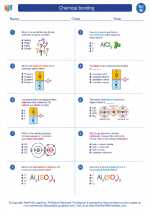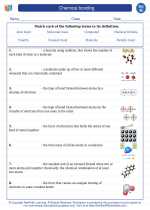Pseudopodia
Pseudopodia, also known as pseudopods, are temporary cytoplasmic projections or "false feet" used for locomotion and engulfing food in some unicellular organisms, such as amoebas and some white blood cells. The term "pseudopodia" comes from the Greek words "pseudes" meaning false, and "pous" meaning foot.
Structure of Pseudopodia
Pseudopodia are formed by the extension of the cytoplasm, supported by microfilaments of actin. The extension is driven by the assembly of actin filaments at the leading edge of the pseudopod, and the subsequent disassembly of filaments at the rear, allowing the cell to move forward.
Functions of Pseudopodia
Pseudopodia serve several functions, including:
- Locomotion: Unicellular organisms, such as amoebas, use pseudopodia to move and change their shape as they navigate their environment.
- Feeding: Amoebas and other protozoa use pseudopodia to engulf food particles by surrounding and engulfing them in a process called phagocytosis.
Study Guide
Key Concepts
- Definition of pseudopodia
- Structure of pseudopodia
- Functions of pseudopodia
Study Tips
- Review the process of phagocytosis and how pseudopodia are involved in engulfing food particles.
- Understand the role of actin filaments in the formation and extension of pseudopodia.
- Compare and contrast the locomotion mechanisms of organisms that use pseudopodia versus those that use flagella or cilia.
Practice Questions
- What are pseudopodia and what are their functions?
- Describe the structure of pseudopodia and the role of actin filaments in their formation.
- Explain how pseudopodia are involved in the process of phagocytosis.
◂Science Worksheets and Study Guides Eighth Grade. Chemical bonding
Study Guide Chemical bonding
Chemical bonding  Worksheet/Answer key
Worksheet/Answer key Chemical bonding
Chemical bonding  Worksheet/Answer key
Worksheet/Answer key Chemical bonding
Chemical bonding  Worksheet/Answer key
Worksheet/Answer key Chemical bonding
Chemical bonding  Vocabulary/Answer key
Vocabulary/Answer key Chemical bonding
Chemical bonding 

 Worksheet/Answer key
Worksheet/Answer key
 Worksheet/Answer key
Worksheet/Answer key
 Worksheet/Answer key
Worksheet/Answer key
 Vocabulary/Answer key
Vocabulary/Answer key

The resources above cover the following skills:
Chemistry: Students will use scientific skills and processes to explain the composition, structure, and interactions of matter in order to support the predictability of structure and energy transformations.
Structure of Matter: Provide evidence to explain how compounds are produced. (No electron transfer)
Describe how elements form compounds and molecules.
Physical and Chemical Changes: Compare compounds and mixtures based on data from investigations and research.
Use evidence from data gathered to explain why the components of compounds cannot be separated using physical properties.
Analyze the results of research completed to develop a comparison of compounds and mixtures.